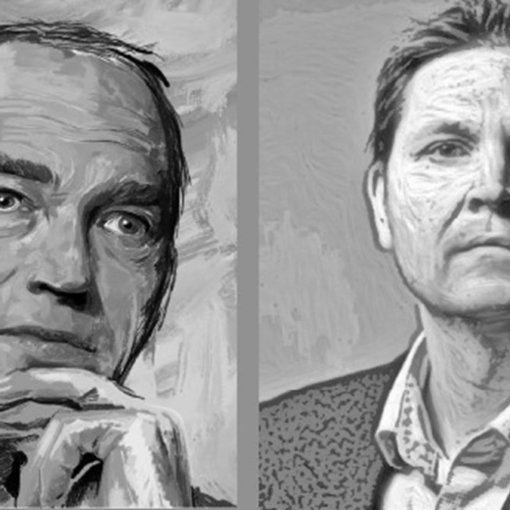The article «Beyond decolonizing: global intellectual history and reconstruction of a comparative method» by Dag Herbjørnsrud, published in the journal Global Intellectual History (May 10 2019) has, in September 2020, an attention score of 96: «Altmetric has tracked 15,773,921 research outputs across all sources so far. Compared to these this one has done particularly well and is in the 98th percentile: it’s in the top 5% of all research outputs ever tracked by Altmetric.»
These journals have referred to the paper «Beyond decolonizing»:
1) The International Education Journal (Australia):

A special issue on «‘Other ways of knowing and doing’: Globalizing social science knowledge in higher education» was published in the spring of 2020 by The International Education Journal: Comparative Perspectives (Vol. 19, No 1, 2020). The «Introduction» article (PDF link) is written by Assoc. Prof. Mousumi Mukherjee and Lecturer Nandita Koshal, both at the O.P. Jindal Global University (Haryana, India). Their final paragraph in «Conclusion» is as follows:
«The four articles in this special issue demonstrate that, even if we engage with the theoretical and methodological work of Indigenous intellectuals in English translation, it can still open-up a rich repertoire of knowledge for all of us. Hence, rather than deconstruction and decolonization, we argue for “globalizing social knowledge in higher education” by learning about “other ways of knowing and doing”. We concur with the methodological draft for a global intellectual history and reconstruction of a global comparative perspective as a way forward in the twenty-first century, as proposed by Herbjørnsrud (2019). We hope that you enjoy reading these four papers and expand your epistemological horizon of “knowing and doing” from a global comparative perspective with a situated understanding of local histories and by engaging with the critical work of
Indigenous intellectuals from India and countries around the world.»
Link: https://openjournals.library.sydney.edu.au/index.php/IEJ/article/view/14544
PDF: https://openjournals.library.sydney.edu.au/index.php/IEJ/article/view/14544/12930#
2) Political Theology, Routledge (US):
On August 21 2020, James Rentona (Edge Hill University, UK) and Anya Topolskib (Nijmegen University, The Netherlands) published the paper «Bodin Now; or, What’s Wrong With Intellectual History?» in the journal Political Theology (Routledge). The article begins:
«As we write, the demand for justice of Black Lives Matter rings in the ears of the academy: pull down the statues, decolonize the canon! Seemingly against that grain, especially for scholars of racism, we are nonetheless publishing this collection of articles on one of the towering figures of white privileged male Western thought: Jean Bodin (1529/1530–1596), the French philosopher, jurist, historian, economist, whose definition of sovereignty as the power of the State was one of the defining contributions to political thought in occidental Europe in the midst of its bloody civil wars, and the beginnings of colonialism overseas. How can our publication be justified at this moment?
It is now, more than ever, that we need to make visible the intellectual architecture of modernity that is foundational to discrimination and inequality. We must bring this edifice, of which Bodin is an important part, out of the unlit corners of our libraries, and show how it is still all around us.1 We must, therefore, re-read the origins of these structures with a new agenda that centers questions of difference and inequality. The answer to this challenge is not to be found only in the provincialization of Europe, which Dipesh Chakrabarty called for long ago,(2) and has been taken up by the much more recent field of global intellectual history.(3) Too often, universities consider that some additional research and teaching about the world beyond Europe is enough to tackle the whiteness of the curriculum, and the research agenda in the humanities and
social sciences. Urgently, we must also stare into the very core of Europe.»
Footnote 3: «See Samuel Moyn and Andrew Sartori (eds), Global Intellectual History (New York: Columbia University Press, 2013); Dag Herbjørnsrud, “Beyond Decolonizing: Global Intellectual History and Reconstruction of a Comparative Method,” Global Intellectual History (Published Online, May 2019): https://doi.org/10.1080/23801883.2019.1616310.»
Citation/link: James Renton & Anya Topolski (2020) Bodin Now; or, What’s Wrong With
Intellectual History?, Political Theology, 21:6, 475-478, DOI: 10.1080/1462317X.2020.1806609
3) All Azimuth, A Journal on Foreign Policy and Peace (Turkey):
On June 30 2020, Deniz Kuru (Department of Political Science, Goethe-Universität, Frankfurt am Main, Germany) published the paper «Dialogue of the “Globals”: Connecting Global IR to Global Intellectual History» in All Azimuth, A Journal on Foreign Policy and Peace.
Excerpt from Abstract: «This study aims to provide an exploratory analysis of Global IR, by pointing to its novelty as a tool for expanding our disciplinary frameworks, and furthermore, by connecting it to the quite simultaneously emerging field of Global Intellectual History. Such an approach enables a more comprehensive understanding of the dynamics that have led to an overall focus on the “global.” …»
«It concludes by discussing the value of Global IR in terms of its potential role for broadening the discipline not just in ways that are more (IR-)introspective but also in its bridge-building capacity to other fields with similar concerns, extending to Global Intellectual History and beyond, and provides a brief list of initial suggestions.»
Main text: «For a long time focusing on thinkers and their ideas mostly in the confines of their national frameworks, Intellectual History has at other times tended to mostly extend itself to a Western-centric
analysis of the impact these ideational forces had on the “others”/“the Rest” by supposing a
one-way influence that reaches the peripheries from the core.40 However, the “global turn”
has reached by now also the shores of Intellectual History, engendering in the process a novel
historiographical approach: “Global Intellectual History.” Following Lovejoy, the “founding
father” of the history of ideas/intellectual history, it becomes again important to underline
that “ideas are the most migratory things in the world.” In this sense, this turn is for some also
a return to the field’s origins.(41)«
Footnote 41: «See Dag Herbjørnsrud, “Beyond Decolonizing: Global Intellectual History and Reconstruction of a Comparative Method,” Global Intellectual History (2019), doi: 10.1080/23801883.2019.1616310, and there page 9 for the Lovejoy quote.»
Citation: Kuru, D . «Dialogue of the “Globals”: Connecting Global IR to Global Intellectual History». All Azimuth: A Journal of Foreign Policy and Peace 9 (2020 ): 229-248.
DOI: https://doi.org/10.20991/allazimuth.730127
Link, PDF: https://dergipark.org.tr/en/download/article-file/1130762
*** Link for Herbjørnsrud’s article «Beyond decolonizing …»: ***
Dag Herbjørnsrud (2019) Beyond decolonizing: global intellectual history and reconstruction of a comparative method, Global Intellectual History, DOI: 10.1080/23801883.2019.1616310






